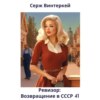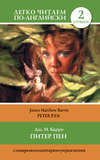Read the book: «A Widow's Tale, and Other Stories»
INTRODUCTORY NOTE
I remember well my first meeting with Mrs Oliphant a dozen years ago, how she "ordered" me to Windsor where she was then living (I like to think that it was an order, and obeyed as such by her very loyal subject), and that I was as proud to go, and as nervous, as those must be who make the same journey by command of another lady resident in the same place. I have an odd recollection too of buying my first umbrella for this occasion – for no reason apparently except that I wanted to impress her.
They say she was not tall, but she seemed tremendous to me that day. I find an old letter in which I dwelt on the height of her and her grand manner, so that evidently the umbrella was of little avail. In her presence, I think, those whose manner is of to-day must always have felt suddenly boorish. She belonged to a politer age: you never knew it more surely than when she was putting you at your ease with a graciousness that had something of a command in it. Mrs Oliphant was herself the fine Scots gentlewoman she drew so incomparably in her books, most sympathetic when she unbent and a ramrod if she chose – the grande dame at one moment, almost a girl, it might be, the next (her sense of fun often made her a girl again), she gave you the impression of one who loved to finger beautiful things, and always wore rare caps and fine lace as if they were part of her. She could be almost fearsomely correct, and in the middle of it become audacious (for there was a dash of the Bohemian about her); her likes and dislikes were intense; in talk she was extremely witty without trying to be so (she was often, I think, amused and surprised to hear what she had just said); her eyes were so expressive, and such a humorous gleam leapt into them when you attempted to impress her (with anything more pretentious than an umbrella), that to catch sight of them must often to the grandiloquent have been to come to an abrupt stop; and, more noticeable perhaps than anything else, she was of an intellect so alert that one wondered she ever fell asleep. That was but a first impression, a photograph of externals, little to be read in it of the beautiful soul and most heroic woman who was the real Mrs Oliphant. The last time I saw her, which was shortly before her death, I knew her better. The wit had all gone out of her eyes, though not quite from her talk; her face had grown very sweet and soft, and what had started to be the old laugh often ended pitifully. The two sons who had been so much to her were gone, and for the rest of her days she never forgot it, I think, for the length of a smile. She was less the novelist now than a pathetic figure in a novel. She was as brave as ever, but she had less self-control; and so, I suppose it was, that the more exquisite part of her, which the Scotswoman's reserve had kept hidden, came to the surface and dwelt for that last year in her face, as if to let all those who looked on Mrs Oliphant know what she was before she bade them good-bye.
I wonder if there is among the younger Scottish novelists of to-day any one so foolish as to believe that he has a right to a stool near this woman, any one who has not experienced a sense of shame (and some rage at his heart) if he found that for the moment his little efforts were being taken more seriously than hers: I should like to lead the simple man by the ear down the long procession of her books. It is too long a procession, though there are so many fine figures in it – men and women and boys (the boy in 'Sir Tom' is surely among the best in fiction) in the earlier stories, nearly all women in the latest; but whether they would have been greater books had she revised one instead of beginning another is probably to be doubted. Not certainly because the best of them could not have been made better. That is obvious to almost any reader: there nearly always comes a point in Mrs Oliphant's novels where almost any writer of the younger school, without a sixth part of her capacity, could have stepped in with advantage. Often it is at the end of a fine scene, and what he would have had to tell her was that it was the end, for she seldom seemed to know. Even 'Kirsteen,' which I take to be the best, far the best, story of its kind that has come out of Scotland for the last score of years, could have been improved by the comparative duffer. Condensation, a more careful choice of words, we all learn these arts in the schools nowadays – they are natural to the spirit of the age; but Mrs Oliphant never learned them, they were contrary to her genius (as to that of some other novelists greater than she), and they would probably have trammelled her so much that the books would have lost more than they gained. We must take her as she was, believing that she knew the medium which best suited her talents, though it was not the best medium.
Her short stories, of which this book is a sample, contain some of her finest work, – indeed nearly all of her deepest imaginings have appeared, as it happens, in this form. There is nothing in this volume that deserves to rank with, say, 'Old Lady Mary,' nor has it the rippling humour of the delicious 'Chronicles of Carlingford': its tale of the Fellow of his college who becomes a raving lunatic because society has discovered that his mother sells butter would be quite unworthy of inclusion were it not for the noble figure of the mother; yet the book has numberless flashes of insight, several of those women "no longer in the first flush of youth" of whom Mrs Oliphant wrote always with abundant sympathy, and latterly as if she loved them the best, and at least one sweet love story in "Mademoiselle" (Mademoiselle writes such a charming love letter, saying No, that if she had dropped it on the way to the post-office the first man who picked it up and read it would have rushed her to the registrar); and as if all this were not enough, she gives us in "Queen Eleanor and Fair Rosamond" as terrible and grim a picture of a man tired of fifty years of respectability as was ever written. One would have liked to be able to pitchfork the son out of the story, because he will talk, and, after the supreme situation, to drop the curtain on the analysis of Queen Eleanor's state of mind. But it is a story to set you thinking. Mrs Oliphant wrote so many short stories that she forgot their names and what they were about, but readers, I think, will not soon forget this one; and if not this, when shall their hearts grow cold and their admiration wane for the wonderful woman of whom it is but the thousandth part?
J. M. BARRIE.
A WIDOW'S TALE
CHAPTER I
The Bamptons were expecting a visitor that very afternoon: which made it all the more indiscreet that young Fitzroy should stay so long practising those duets with May. It was a summer afternoon, warm and bright, and the drawing-room was one of those pretty rooms which are as English as the landscape surrounding them – carefully carpeted, curtained, and cushioned against all the eccentricities of an English winter, yet with all the windows open, all the curtains put back, the soft air streaming in, the sunshine not too carefully shut out, the green lawn outside forming a sort of velvety extension of the mossy soft carpet in which the foot sank within. This combination is not common in other countries, where the sun is so hot that it has to be shut out in summer, and coolness is procured by the partial dismantling of the house. From the large open windows the trees on the lawn appeared like members of the party, only a little withdrawn from those more mobile figures which were presently coming to seat themselves round the pretty table shining with silver and china which was arranged under the acacia. Miss Bampton, who had been watching its arrangement, cast now and then an impatient glance at the piano where May sat, with Mr Fitzroy standing over her. He was not one of the county neighbours, but a young man from town, a visitor, who had somehow fallen into habits of intimacy it could scarcely be told why. And though he was visiting the Spencer-Jacksons, who were well known and sufficiently creditable people, nobody knew much about Mr Fitzroy. It is a good name: but then it is too good a name to belong to a person of whom it can be said that nobody knows who he is. A Fitzroy ought to be so very easily identified: it ought to be known at once to which of the families of that name he belongs – very distantly perhaps – as distantly as you please; but yet he must somehow belong to one of them.
This opinion Miss Bampton, who was a great genealogist, had stated over and over again, but without producing any conviction in her hearers. Her father asked hastily what they had to do with Fitzroy that they should insist on knowing to whom he belonged. And May turned round upon her little, much too high, heel and laughed. What did she care who he was? He had a delightful baritone, which "went" beautifully with her own soprano. He was very nice-looking. He had been a great deal abroad, and his manners were beautiful, with none of the stiffness of English manners. He did not stand and stare like Bertie Harcourt, or push between a girl and anything she wanted like the new curate. He knew exactly how to steer between these two extremes, to be always serviceable without being officious, and to insinuate a delightful compliment without saying it right out. This was May's opinion of the matter: and then he had such a delightful voice! So that this stranger had come into the very front of affairs at Bampton-Leigh, to the disturbance of the general balance of society, and of many matters much more important than an agreeable visitor, which were going on there. For example, Bertie Harcourt had almost been banished from the house: and he was a young squire of the neighbourhood with a good estate and very serious intentions; while the Spencer-Jacksons, with whom Mr Fitzroy was staying, were not above half pleased to have their novelty, their new man, absorbed in this way. Mrs Spencer-Jackson was a lively young woman who liked to have a cavalier on hand, whom she could lend, so to speak, to a favourite girl as a partner, whether at carpet dance or picnic, and dispose of according to her pleasure – an arrangement which Mr Fitzroy had much interfered with by devoting himself to Bampton-Leigh.
These things were being turned over in her mind by Miss Bampton, while she sat looking out upon the lawn where everything looked so fresh and cool under the trees. She was busy with her usual knitting, but this did not in any way interfere with the acuteness of her senses, or the course of her thoughts. Though May and she were spoken of as if on the same level, as the Miss Bamptons, this lady was twenty years older than her sister, and had discharged for half of that time the functions of mother to that heedless little girl. May had made Julia old, indeed, when she had no right to be considered old. When the mother died she had been a handsome quiet young woman, thirty indeed, which is considered, though quite falsely, an unromantic age yet quite capable of being taken for twenty-eight, or even twenty-five, and with admirers and prospects of her own. After her mourning was over she had become Miss Bampton, the feminine head of the house, managing everything, receiving the few guests her father cared to see, who were almost all contemporaries of his own, as if she were as old as any of them – and had moved up to a totally different level of life. Such a transformation is not unusual in a widower's house. Miss Bampton took the position of her father's wife rather than of his daughter, and no one thought it strange. If she sacrificed any feelings of her own in doing so, no one found it out. She was a mother to May; she had found her position, it seemed, taken possession of her place in the world, at the head of a house which was her own house, though it was not her husband's but her father's. It was generally supposed that the position suited her admirably, and that she had never wished for any other: which indeed I agree was very probably the case, though in such matters no one can ever be confident. It was thus that she happened to be so absorbed in May, so watchful of this (she thought) undesirable interposition of Mr Fitzroy, of the partial withdrawal of Bertie Harcourt, and of many things of equal, or rather equally little, moment to the general world.
And this was the afternoon when Nelly Brunton, the little widowed cousin from India, was coming on her first visit since her return. It was true that a year had elapsed or more since the death of Nelly's husband: but Miss Bampton felt that to receive the poor little widow in the very midst of the laughter, the songs, the foolish conversation and excitement of a love affair, or at the least a strong flirtation, was the most inappropriate thing that could be conceived. Poor Nelly with her life ended, so soon – come back with all gaieties and gladness for ever shut out, the music silenced, the very sight of a man (Miss Bampton felt) made painful to her – to a life much more subdued and quiet than old-maidenhood, she who had always been such a bright little thing, full of fun and nonsense! Good Julia figured her cousin to herself in a widow's cap (which, however, whatever people may say, is a most becoming head-dress to a young woman), pale, smiling quietly when her sympathy was called upon, shrinking aside a little from a laugh, thinking of nothing but her two little children, in whom she would, no doubt, poor thing, begin to live a subdued life by proxy – and whom she had called, in that very touching letter, the sole consolations of her life. Poor little Nelly! who would no doubt break down altogether when she came in to this old place, which she had known in the brightness of her youth – and who ought, at least, to be received by her relations alone, not in a stranger's presence. Miss Bampton grew very restless and unhappy as the time went on. She heard the pony carriage drive out, which May ought to have driven down to the station to meet her cousin. May had found time to run out to tell Johnson that he must go himself, that she could not be ready, and the sound of the wheels upon the gravel felt like a reproach to Julia, who was not in the least to blame. How dreadful to send only a servant to meet her – considering how much had come and gone since she last stopped at that station! When the carriage had gone, Miss Bampton, who felt it her duty, though she was not in the least wanted, to remain in the drawing-room while all this practising was going on, could not keep still. She went and came into the inner drawing-room, she took out books from the shelves and put them back again, she laid down her knitting and took it up, she looked at the clock first in one room, then in another, and compared them with her watch. Finally, she came up to the performers just as they came to the end of a song.
"That was very nice," Miss Bampton said. "I think you have it perfect. May, poor Nelly may be here at any moment; don't you think you should shut the piano before she comes in?"
"Why?" said May, swinging round upon her stool to look her sister in the face.
"Oh! well, dear, I don't know that I can explain. Nelly, that used to be so fond of all these things herself, coming home a widow, deprived of everything – I think that explains itself, dear."
"Is this lady, then, a statue of woe, covered with crape and white caps and streamers?" said Fitzroy.
"I think I see Nelly like that," cried May, with her fingers running up and down the keys. "We can manage this trio when Nelly comes. You know, Julia, she was always the merriest little thing, ready for any fun. What nonsense to try to make us frightened of Nelly!"
"In the first place, she is much older than you are," said Miss Bampton, with something as nearly like anger as she ever showed to her sister, "so how you can speak so confidently – I can't tell, I am sure, whether she may wear a widow's cap. They don't, I believe, in India; but I am very certain, May, that you should have gone down to the station to meet her, and that it will be a painful thing for her, poor dear, though I hope the feeling may not last – to come back to this house after her trouble, she that has been so happy here."
"Why does she come, then?" said May, with a pout. "If I had thought we were to give up everything to Nelly, and go sighing through all the house – "
"Weep upon her shoulder," suggested the young man, in a low tone.
"I must say," cried Miss Bampton, fluttering her feathers like a dove enraged, "that though this sort of talk may be funny and fashionable and all that, I find it in very bad taste. There is the carriage coming back, and if you have no real sympathy for your cousin, I hope you'll at least shut down the piano and meet her without a song on your lips and a grin on your face!"
This tremendous Parthian shaft Miss Bampton discharged as she hurried out, with an almost pleased consciousness, soon to be changed into remorse, of the force of the dart. A grin on May's face! To think that her laugh, which Mr Fitzroy compared to silver bells and all manner of pretty things, should be spoken of as a grin! May closed the piano with a noise like a blow.
"We shall have to stop, I suppose," she said, impatiently, "though I did want so much to try over that last again."
"And I suppose I ought to fly," said Fitzroy. "Must I? I should like to have one peep at this wonderful widow before I leave you, dissolved in tears – "
"Oh, don't talk nonsense!" said May, with the faintest little frown upon her forehead. It is one thing to laugh or jeer in your own person at your family arrangements, and quite another thing to have your laugh echoed by a stranger. "I suppose I must go and meet her," she added, quickly, and hurried out, leaving him alone by the piano.
If Mr Fitzroy had been a young man of delicate feelings, it is probable that he would have disappeared by the window, and delivered his friends from his unnecessary presence at such a moment. But his feelings were quite robust so far as other people were concerned, and his curiosity was piqued. He stood calmly, therefore, and waited till the party returned. He listened to Miss Bampton's little cries and exclamations, subdued by the distance but yet distinguishable. "Dear Nelly! dear Nelly! So glad, so glad to see you! Welcome back to us all! Welcome! oh, my dear, my dear!" Then a little sound of crying, then "Oh, Nelly, dear!" from May; and kisses, and a note or two of a new voice, "Dear old Ju! dear Maysey," different, not like the tones of the sisters, which resembled, much unlike as their personalities were. Then there sounded old Mr Bampton's tremulous bass. "Well, Nelly, my dear; glad to see you back again." To all this commotion Percy Fitzroy listened, amused at the self-revelation in the different tones. It was highly impertinent on his part to stay, and without reason; but his mind was not much disturbed by that.
Then the little procession streamed in, May first, pushing open the door, Miss Bampton after, with the new-comer's arm affectionately and tightly drawn through hers, Mr Bampton lumbering behind, with his heavy tread. The new-comer – ah! she was certainly worth a second look. She was covered with crape, with a long veil falling almost to her feet; but it was apparent to Fitzroy's very sharp and experienced eyes that the crape was rusty and brown, and probably d'occasion, put on for her first appearance and to impress her relations. I don't know what it was in Mrs Brunton's face which gave the young man of the world this impression. There are people who understand each other without a word, at a glance. Mrs Brunton's face was a very pretty one, much prettier than May's, who had not much more than the beauté de diable, the first freshness and bloom of a country girl, to recommend her. The young widow had better features; she had a lurking something in the corners of her mouth, which looked like "a spice of wickedness" to the audacious stranger. She lifted her eyes with a little sentiment to survey "the dear old room," prepared to sigh; but caught, with a lightning glance, the unknown young man in it, with the faintest elevation of her eyebrows, postponing for a moment that "suspiration of forced breath," which, however, followed all the same, with only an infinitesimal delay. "The dear old room," said Nelly; "nothing changed except – " and then came the round, full, long-drawn sigh. Mr Fitzroy felt that he had done well to wait; there was fun to be anticipated here. He caught May's eyes slightly dubious, and elevated his own brows with a look that called back the smile to her face. Then he crossed the room to the door, under shadow of Mr Bampton's back, and giving a little pressure to her hand in parting, whispered "To-morrow?" as if it were for that question he had stayed. May gave him a smile and a nod, and he hastened away. What could be more discreet? Even Miss Bampton, full of wrath against him for his lingering, opened her mouth in surprise when she found he had disappeared so unobtrusively, and had nothing to say.



















